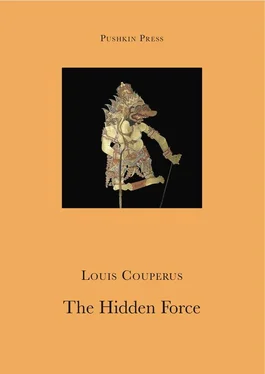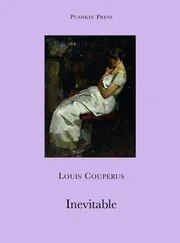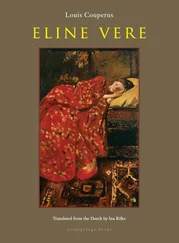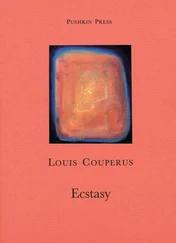Louis Couperus - The Hidden Force
Здесь есть возможность читать онлайн «Louis Couperus - The Hidden Force» весь текст электронной книги совершенно бесплатно (целиком полную версию без сокращений). В некоторых случаях можно слушать аудио, скачать через торрент в формате fb2 и присутствует краткое содержание. Год выпуска: 2012, ISBN: 2012, Издательство: Pushkin Press, Жанр: Классическая проза, на английском языке. Описание произведения, (предисловие) а так же отзывы посетителей доступны на портале библиотеки ЛибКат.
- Название:The Hidden Force
- Автор:
- Издательство:Pushkin Press
- Жанр:
- Год:2012
- ISBN:9781908968227
- Рейтинг книги:4 / 5. Голосов: 1
-
Избранное:Добавить в избранное
- Отзывы:
-
Ваша оценка:
- 80
- 1
- 2
- 3
- 4
- 5
The Hidden Force: краткое содержание, описание и аннотация
Предлагаем к чтению аннотацию, описание, краткое содержание или предисловие (зависит от того, что написал сам автор книги «The Hidden Force»). Если вы не нашли необходимую информацию о книге — напишите в комментариях, мы постараемся отыскать её.
The Hidden Force — читать онлайн бесплатно полную книгу (весь текст) целиком
Ниже представлен текст книги, разбитый по страницам. Система сохранения места последней прочитанной страницы, позволяет с удобством читать онлайн бесплатно книгу «The Hidden Force», без необходимости каждый раз заново искать на чём Вы остановились. Поставьте закладку, и сможете в любой момент перейти на страницу, на которой закончили чтение.
Интервал:
Закладка:
Léonie had listened to him, smiling all the while; she knew his secret raptures, his passion for his work — what she called his worship of the Colonial Administration. She accepted it; she had nothing against it. She too appreciated the luxury of the life of a district commissioner. The relative isolation didn’t matter to her, since she was mostly self-sufficient… She replied with a smile, content, charming, with her milky complexion, which was even whiter under the light dusting of rice powder that contrasted with the red silk of the kimono, and beautifully framed by her wavy blond hair.
That morning, for a moment, she had been out of humour, had found Labuwangi with its dreary provincial air oppressive after Batavia. But since then she had been given a large gemstone, since then she had Theo back… His room was close to hers. And it would be a long time before he was able to find a position.
Those were her thoughts, while her husband, after the pleasure of confessing his innermost thoughts, still lay in blissful contemplation. Her reflections went no deeper than that, anything resembling remorse would have astonished her profoundly, had she been capable of feeling anything of the sort… It was gradually growing dark, the glowing moon was already rising, and beyond the velvety plump banyans, beyond the crowns of the coconut palms, which waved about and stuck up into the air like ceremonial bunches of dark ostrich feathers, the last rays of the sun gave a dull, blurred, golden reflection, against which the plumpness of the banyans and the stateliness of the coconut palms stood out as if etched in black.
From the distance came the monotonous, melancholy sound of a native gamelan percussion orchestra, its notes like a limpid piano line punctuated by deep dissonants…
6
VAN OUDIJCK, in a good mood because of the presence of his wife and children, was keen to go for a drive, and horses were hitched to the landau. He looked out with a jovial, amiable expression from beneath the wide gold braid of his cap. Beside him, Léonie was wearing a new mauve muslin dress, from Batavia, and a hat trimmed with mauve poppies. In the provinces a woman’s hat is a luxury, a mark of elegance, and Doddy, seated opposite her, hatless in provincial style, was silently annoyed and felt that Mama might have told her that she was going to “use” a hat. Now she looked so drab beside Mama, she couldn’t stand those smiling poppies! Only René had accompanied them, in a clean white suit. The head attendant sat on the box next to the coachman and held against his hip the large gold parasol, a symbol of authority. It was past six and already growing dark. It was at this time of day that a velvety silence, that tragic mystery of the twilit atmosphere of east monsoon days, settled over everything. The occasional bark of a dog or the coo of a wood pigeon was all that broke the unreal silence, like in a ghost town. But the carriage rattled right through it, and the horses trampled the silence to shreds. They encountered no other carriages, the absence of any sign of human life casting a spell over the gardens and verandas. A few young men were strolling about and raised their hats. The carriage had left the main avenues and entered the Chinese quarter, where the lights were being lit in the little shops. Business was more or less over: the Chinese were resting, their legs stretched out in front of them, or crossed one over the other in a general air of inactivity. When the carriage approached they got up and remained standing respectfully. The Javanese — those who had been well brought-up and had manners — crouched down. At the roadside, lit by small paraffin lamps, was a line of portable kitchens, harbouring drink vendors and pastry sellers. Countless little lights glowed in the evening dusk, grubby and garish, revealing the Chinese stalls crammed with merchandise, a jumble of red and gold characters and plastered with red and gold labels with inscriptions on them; at the back was the family altar with the sacred print of the white god, seated, and behind him the leering black god.
Suddenly the road widened and became more respectable. Houses of wealthy Chinese loomed gently out of the darkness. Especially striking was the palatial white villa of a wealthy former opium dealer who had made his fortune in the days before opium regulation, a shining palace of elegant stucco with countless outbuildings, the gates of the front veranda in a monumental Chinese style, grandly elegant in muted gold tones. At the back of the open house stood the huge family altar, the print of the gods resplendent in light, amid a mannered garden laid out with winding paths, exquisitely filled pots and tall flower vases glazed dark blue-green and containing precious dwarf plants. All this had passed from father to son — and all was kept in a state of sparkling tidiness, with a well-tended neatness of detail: the prosperous, spotlessly clean luxury of a Chinese opium millionaire. But not all the Chinese houses were so ostentatiously visible, most lay hidden in gardens behind high walls, shut off, retreating into their secretive family life. Suddenly the houses petered out and the wide road became lined with Chinese graves, opulent tombs. A grass mound with a bricked entrance — the entrance to death — was raised up in the symbolic shape of the female organ — the gateway to life. An ample lawn surrounded it (to the great annoyance of Van Oudijck, who calculated how much agricultural land had been lost to the graves of these rich Chinese). The Chinese seemed to triumph in life and death in the town that was otherwise so quiet and mysterious. It was the Chinese who gave it its real character of hectic coming and going, trade, making fortunes, living and dying. When the carriage entered the Arab quarter — ordinary houses, but gloomy, lacking style, fortune and human existence, hidden behind thick doors; at one, true, there were chairs on the front veranda, but the man of the house squatted gloomily on the ground, motionless, following the carriage with his black eyes — this part of town seemed even more tragically mysterious than the distinguished parts of Labuwangi, and the ineffable mystery seemed to billow out like an aspect of Islam across the whole town, as if it were Islam that spread a dark cloud of the fatal melancholy of resignation in the trembling, soundless evening… They could feel it in their trundling carriage, having been used to that atmosphere since childhood and no longer sensitive to the sombre mystery that was like the approach of a black power, which from the start had breathed over them — the unsuspecting rulers with their Creole blood. Perhaps when Van Oudijck occasionally read in the newspapers about pan-Islamism, he caught a whiff, or the black power, the sombre mystery, opened to his innermost thoughts. But like now, out for a drive with his wife and children in the rattling carriage — the clip-clop of his fine Australian horses, the attendant with the closed parasol that glittered like a cluster of sun’s rays — he felt too much himself, with his ruler’s and conqueror’s nature, to have any inkling of the black mystery or catch any glimpse of the black peril. And more especially because he felt too much at ease to sense or see anything melancholy. In his optimism he did not even see the decline of his town, which he loved; he did not notice, as they drove on, the huge colonnaded villas that bore witness to the former wealth of planters — abandoned, neglected, in overgrown grounds; one of them occupied by a lumber company that had allowed its foreman to occupy the house and pile planks in the front garden. The deserted houses loomed sad and white, their pillared porticoes casting shapes that gleamed eerily in the moonlight, like temples of doom… But seated in their carriage, enjoying the gentle rocking motion, they did not see it like that: Léonie dozed and smiled, and Doddy, now they were approaching Long Avenue once more, had her eyes peeled looking for Addy…
Читать дальшеИнтервал:
Закладка:
Похожие книги на «The Hidden Force»
Представляем Вашему вниманию похожие книги на «The Hidden Force» списком для выбора. Мы отобрали схожую по названию и смыслу литературу в надежде предоставить читателям больше вариантов отыскать новые, интересные, ещё непрочитанные произведения.
Обсуждение, отзывы о книге «The Hidden Force» и просто собственные мнения читателей. Оставьте ваши комментарии, напишите, что Вы думаете о произведении, его смысле или главных героях. Укажите что конкретно понравилось, а что нет, и почему Вы так считаете.












